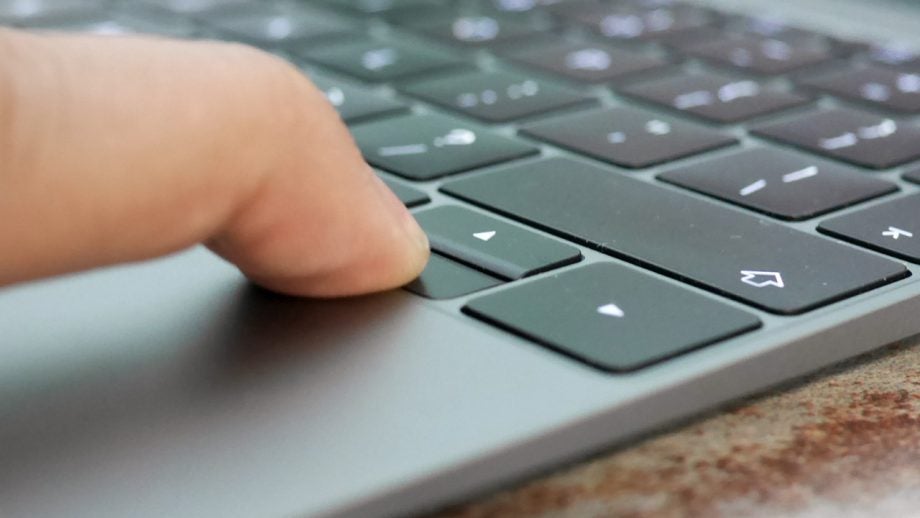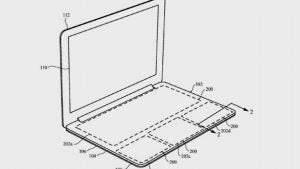Is Apple planning to kill off the keyboard?

The keyboard has been a consistent staple of personal computing, but it might not always be that way.
Apple has filed a patent for a touch-sensitive surface that replaces the keyboard on an electronic device.
The patent features a diagram where a MacBook keyboard is replaced by a capacitive surface, which recognises input without the need for buttons.
Apple describes the technology as ‘zero-travel input’, because the key-press action is completely removed.
“The input structure has a metal contact layer, a sense layer positioned below the metal contact layer, and a drive layer capacitively coupled to the sense layer,” reads the patent application, which was filed on September 30, 2014, but published on April 7.
 Via US Patent & Trademark Office
Via US Patent & Trademark Office
Interestingly, the patent also describes the flat, key-less keyboard as “force-sensitive”, which could suggest the incorporation of Apple’s pressure-sensitive 3D Touch technology, as featured on the iPhone 6S.
Related: Best Laptops 2016
However, the existence of this patent is in no way indicative of intent to use the proposed technology. There’s always a chance that Apple may never roll out such a touch-sensitive keyboard on the MacBook, or any other PC device for that matter.
What’s more, many consumers are beholden to the physical sensation that comes from engaging a key. That’s partly the reason why mechanical keyboards still see strong sales, particularly in the PC gaming market. If Apple did kill off physical keyboards, it’s likely some users would be unhappy.
What are your thoughts on the prospect of a touchscreen keyboard for the MacBook? Let us know in the comments.


